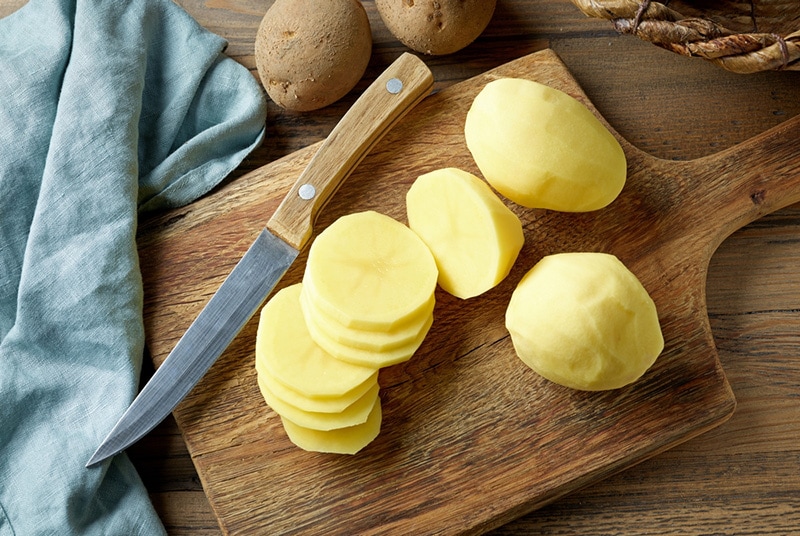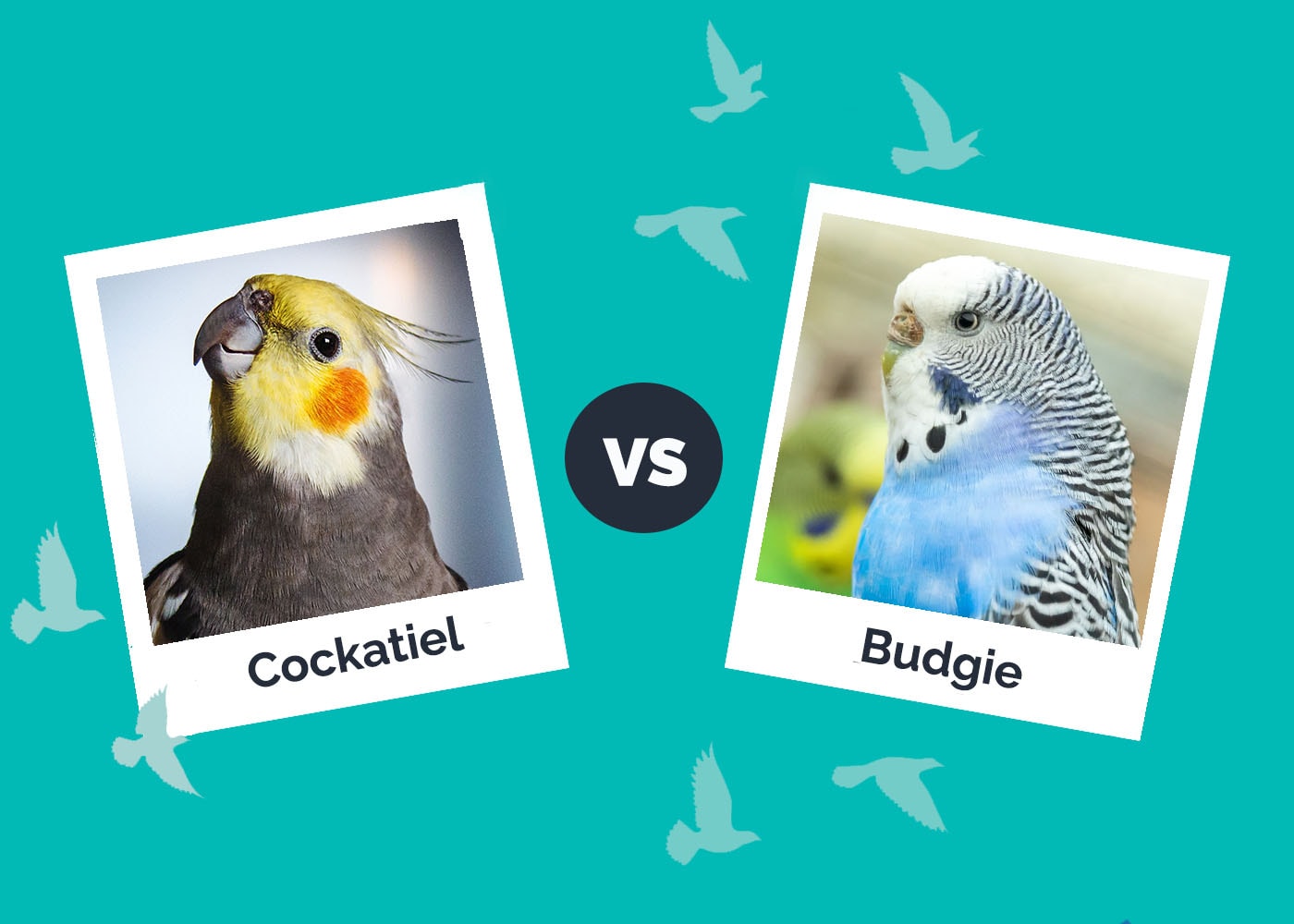Why Do Parakeets Puff Up? 6 Vet-Reviewed Reasons
Updated on
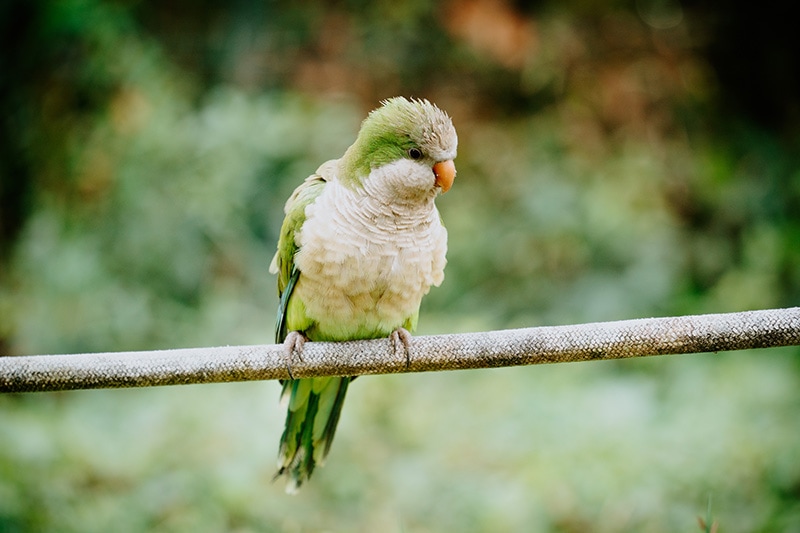
Owning any pet comes with specific care requirements, which include things like diet, exercise, and general looking after. But a big part of caring for a pet is understanding them—specifically, becoming familiar with their body language.
If you own a parakeet and have noticed them puffing up, you’re likely wondering what this means. Parakeets typically puff up when they are cold, sleepy, excited, scared, or preening. With other signs present, though, it can indicate that the parakeet has a health problem.
We get into more of the details about puffed-up parakeets and how you can help them here.
The 7 Reasons That Your Parakeet Puffs Up
1. Your Parakeet Is Cold
A puffed-up parakeet can mean they are cold, which makes sense because they have their origins in much warmer climates.
A parakeet that is fluffing their feathers and is additionally shaking might be cold. The fluffed-out feathers help trap an insulating layer of air between the feathers and their skin. Basically, they are self-regulating their temperature.
Parakeets are usually most comfortable in environments 65°F to 75°F (15.5°C to 23.8°C). You should adjust the temperature in your home to 60°F at a minimum and ensure that your parakeet’s cage is not near a draft, which can include an air-conditioner vent.
Hypothermia is a real concern, so if your bird is showing signs of distress, you should take them to your avian veterinarian immediately!

2. Your Parakeet Is Sleepy
Just like how we enjoy burrowing into soft blankets when settling into bed for the night, parakeets will fluff themselves out when preparing to sleep.
Parakeets generally only puff up when sleeping overnight and not so much when they take naps during the day.
Parakeets need to have lights out overnight, or they won’t be able to fall into a deep sleep, which is necessary for their overall well-being.
At the end of the day, if your parakeet is comfortable and starts to puff up, cover the cage ( if your parakeet is happy with a cover) and turn out the lights.
3. Your Parakeet Is Bathing and Preening
Parakeets spend a fair amount of time grooming and preening their feathers and taking baths. Preening can involve fluffing out the feathers so they have better access to them and can realign them.
They will often ruffle their feathers to shake out dust and debris before taking a bath. Puffed feathers after a bath help dry their feathers.
Ensure that you have the right-sized bath for your parakeet. They come in a wide variety of sizes, and there are various methods for bathing your bird.

4. Your Parakeet Is Happy and Excited
Birds that puff out their chests and fluff their feathers can also feel quite happy and excited! If you notice your parakeet puffing up when you enter the room, they might be showing that they love you in their own way. If they show other signs, such as happy chirping, singing, and wagging their tail feathers, these are all indications that they love being around you.
Since this is a positive behavior, you don’t need to do anything about it.
5. Your Parakeet Is Attracting a Mate
Birds puffing up their feathers can often be part of a courtship display, which is most likely to occur during mating season.
Since the mating season is generally in the spring, you might notice the puffing in addition to other behaviors. These can include aggression or regurgitation, and they might try mating with you or a perch or a toy.
Remove any mirrors or nest boxes to start. Mirrors might encourage mating behavior, but if your parakeet shows aggression, leave them alone and don’t handle them too often.
Just remember this behavior is perfectly normal, so stay calm and deal with it as best you can until the season ends.
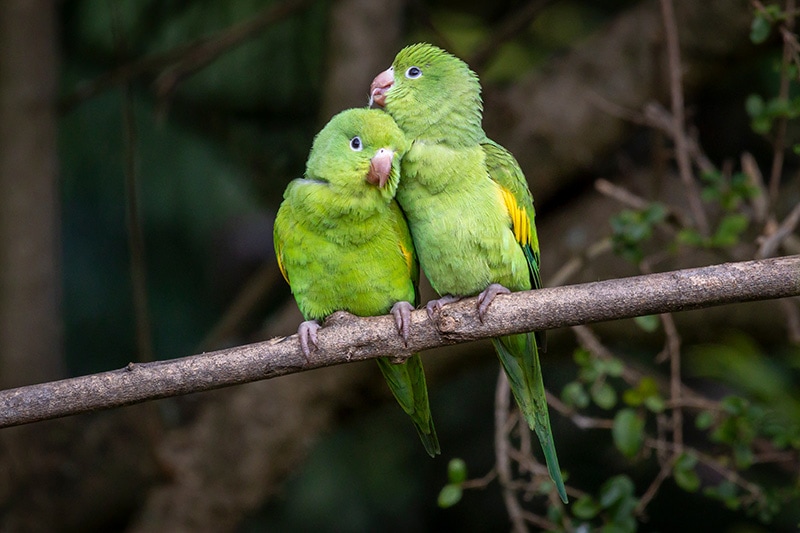
6. Your Parakeet Is Angry or Scared
Birds that feel threatened will puff themselves up to make themselves look bigger. This is common in most animals (e.g., cats) because it’s a method that makes them look like something that you don’t want to mess with.
They might additionally spread their wings away from their body to look even more threatening.
If something is happening to upset your bird, such as the household is too noisy and chaotic, or another pet is bothering them, you should remove the threat. This might mean removing the pet from the room or moving the cage to a quieter space.
You might also want to consider investing in a heavier cage cover that can muffle noises at night, particularly if your bird seems sensitive to noises.
7. Your Parakeet Is Sick
For the most part, it should be obvious when your parakeet is not feeling well. While birds are good at hiding illnesses as a self-preservation technique, you will be familiar with your pet’s behavior and should notice that something is off.
If their feathers are puffed up most of the time, this can indicate that there is a problem, particularly if everything is normal in the environment (like the temperature is just right, they aren’t feeling threatened, and they have plenty of toys, a high-quality diet, and time outside the cage).
The fluffing, in addition to other signs, can be a health problem, so if any of the following signs are also seen, take your bird to the vet:
- Weight loss
- Lack of appetite
- Abnormal droppings (more watery, changes in color or amount)
- Difficulty breathing
- Squinting eyes
- Inflamed nares
- Discharge from the eyes, mouth, or nares
- Lack of grooming or preening
- Feather plucking
- Disinterest in flying
- Sitting on the cage floor instead of a perch
- Quiet with no chirping
- Sleeping excessively
Sometimes, how your parakeet is sleeping can also tell you when there’s a problem. If they are sleeping with both feet on the perch or floor instead of having one leg tucked up and they aren’t sleeping with their head tucked into their shoulder, this merits a visit to your vet.
You should also ensure that they are warm if you can’t get them to the clinic right away. You can call your vet for other steps before taking them in.
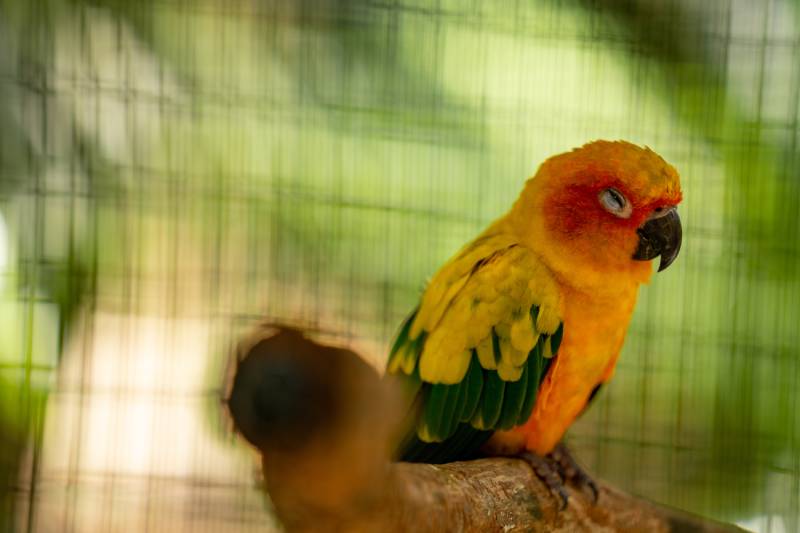
Conclusion
Puffed-up feathers in parakeets can be perfectly normal. They might only be sleepy, preening or particularly happy to see you.
But it can also be because they are cold, feel threatened, or they might be sick. It’s essential to keep an eye on your bird. It’s easier to understand what’s going on if you consider the context of the behavior, alongside their body language and general mood.
Ensure that you have an avian vet lined up and are familiar with your bird before you ever have to worry about an emergency visit. You want your parakeet to stay with you for as long as possible!
Featured Image Credit: Sarka_Svobodova_Photo, Shutterstock




